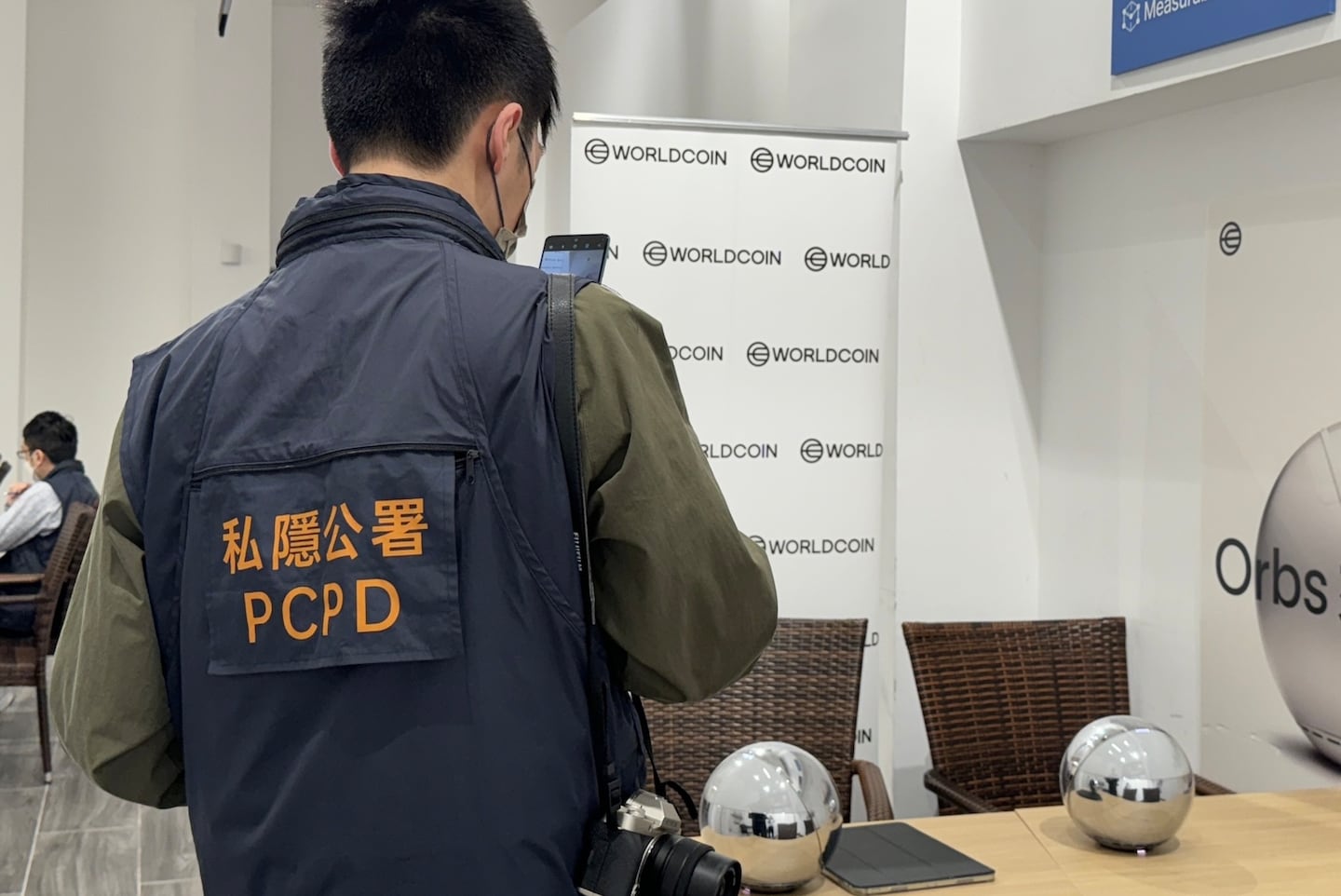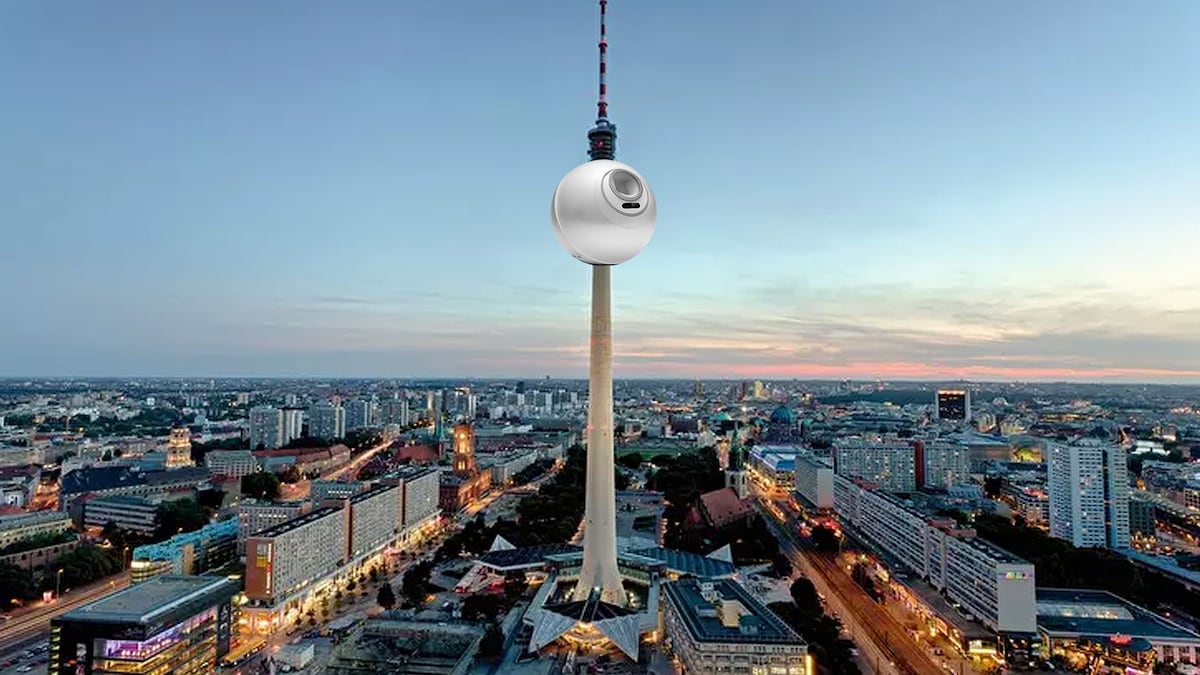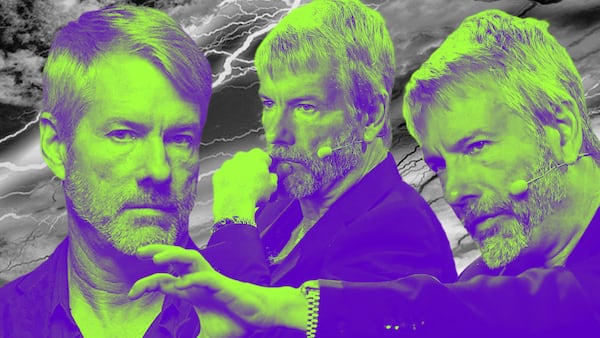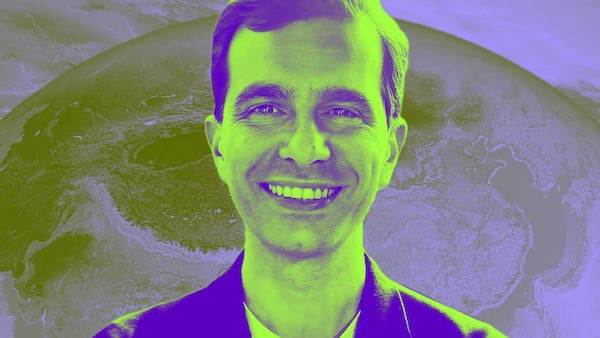- Punters line up in the heart of Berlin to sign up for online identification app.
- Worldcoin’s WLD token hit an all-time high over the weekend.
- The project has come under scrutiny from regulators and privacy watchdogs.
On a cool, grey Monday afternoon, a sizeable crowd gathered on the first floor of a large electronics store in the heart of Berlin’s bustling public square, Alexanderplatz.
Yet people weren’t queueing for the latest iPhone or a PlayStation 5.
They were waiting to get their eyeballs scanned.
Worldcoin, a digital identity network, operates two orbs in the shop that “verify humanness” by recording the unique features of irises.
Free tokens
The venture also gives free digital tokens, WLD, to everyone who steps up to the orb.
“Why not?” said one man who had just finished his scan. “It’s free money.”
Worldcoin signups are booming in Berlin. A member of the team manning the outpost on Monday explained that they had already scanned some 90 individuals since opening just two hours prior.
Worldcoin, which was developed by an outfit called Tools for Humanity, has added more than 832,000 new accounts worldwide in the last seven days, according to its website. In total, it has scanned the eyeballs of more than 3.7 million people.
The surge in interest in Berlin and elsewhere stems from a 230% jump in the value of WLD this past month.
It’s the latest indicator that crypto, after enduring a punishing bear market in 2022, is on yet another bull run.
Another young man in a designer t-shirt told DL News he had already been scanned a few weeks before and was just bringing his friends.
“Rents in Berlin are getting higher. Why not take the extra money?” still another Worldcoin user said.
It is a nice chunk of extra money.
‘I have no idea how this works. I’m just here because my son told me to come.’
— Worldcoin user
Worldcoin gives newly scanned users 10 tokens on the spot and a total allocation of 75 tokens distributed over several weeks.
This means willing participants can earn up to $600 just to look into an orb at current prices.
Founded in 2019 by OpenAI CEO Sam Altman, Alexander Blania, and Max Novendstern, Worldcoin is looking to solve one of the internet’s biggest problems.
Online, nobody knows who you are, and all manner of platforms are struggling to separate actual humans from bots or bogus users.
By scanning human eyeballs, Worldcoin says it can ensure that anyone with its World ID can prove they are indeed human.
Regulators bristle at Worldcoin
The project has already ruffled feathers among regulators and privacy watchdog groups around the world.
Authorities in Hong Kong raided six Worldcoin orb operators in January, and the venture has pulled its orbs in India. Regulators in France, Germany, Kenya, and Argentina also investigated the project.

Worldcoin has pledged that the biometric data it gathers doesn’t leave its scanning orbs and is processed locally before being permanently deleted.
All that remains is a so-called iris code, a numerical rendition of the picture of your iris and has no links to the Worldcoin app or crypto wallet.
The project also uses zero-knowledge proofs to protect user data, according to Worldcoin’s documentation.
Zero-knowledge proofs is a technology that can compartmentalise identification data. For example, an app using the innovation may reveal whether someone is of the legal drinking age without disclosing their date of birth or other identifying information.
In any case, privacy concerns and technical details were not top of mind for those at the orbs in Alexanderplatz.
“I have no idea how this works,” a woman who had just had her eye scanned told DL News. “I’m just here because my son told me to come.”
When asked what he would do with his money, the woman’s son explained he wasn’t going to sell his tokens.
“Who knows, it could go as high as Bitcoin.”
Liam Kelly is DL News’ Berlin correspondent. Contact him at liam@dlnews.com.







